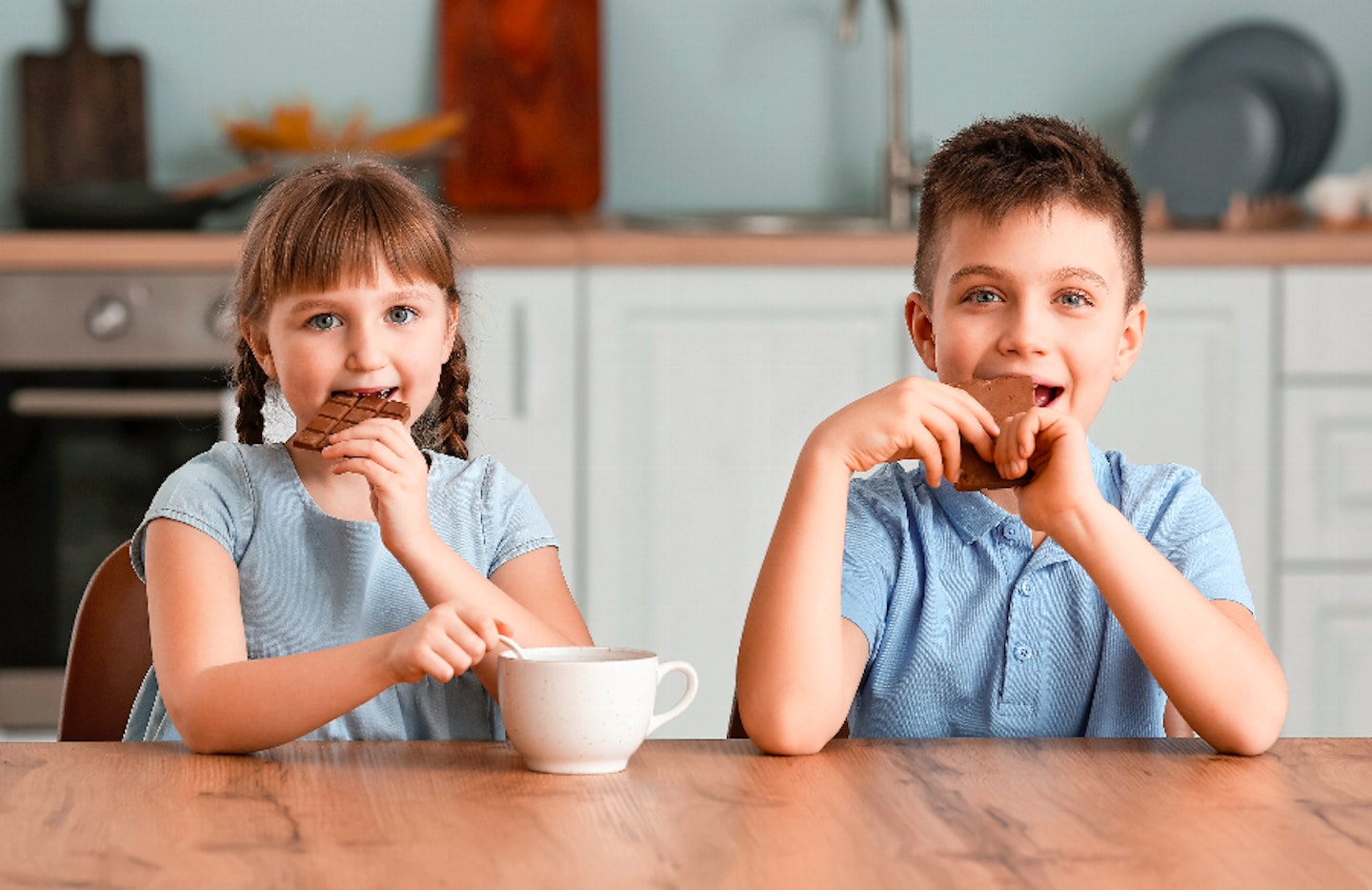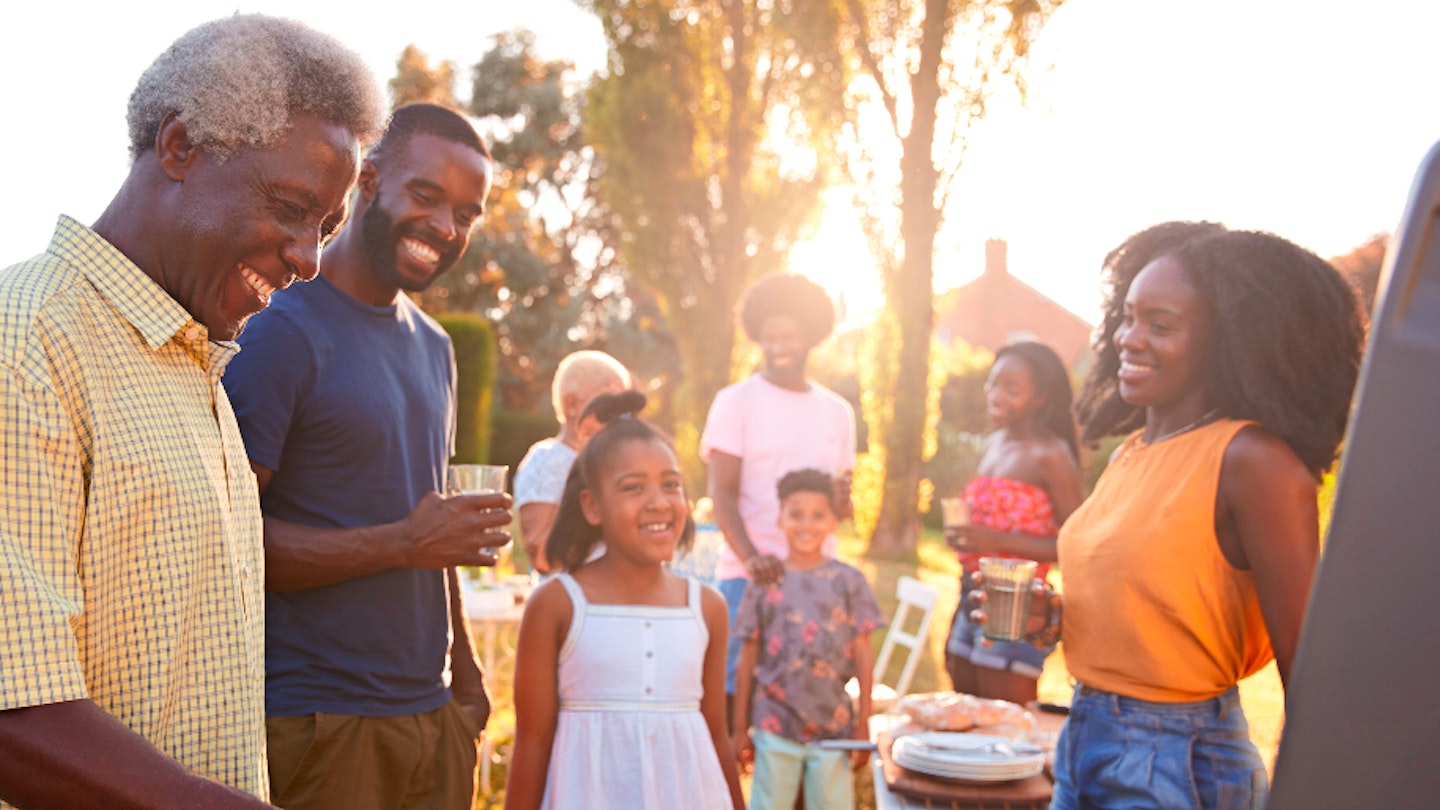Chocolate brand Ferrero recently had to recall lots of its products because of an outbreak of salmonella cases. Lots of people might think that salmonella is only linked to eggs, but you get it from meat and particularly poultry, eggs, and milky-type products, as well as from stuff left sitting around outside the fridge for ages like rice, dips, takeaways and salad, which can all develop it and make you fairly ill.
Understand the causes
Salmonella outbreaks aren’t that rare – which is why these headlines feel quite unfair on the chocolate company! The fact there’s been an outbreak linked to its factory doesn’t mean it’s unhygienic – people get salmonella all the time from all sorts of different things. Salmonella is a bacteria that infects the gut and causes symptoms like diarrhoea, vomiting and tummy pains. It’s quite a nasty bug and if you’re more vulnerable medically, it’ll make you even more ill, which is why it’s not ideal that this outbreak is linked to foods small children tend to eat. If you’re very little, having salmonella can put you at risk of dehydration. All these children will recover, but it will be unpleasant for them.
Don't leave food out in the sun
This outbreak aside, some of the most common foods and drinks linked to salmonella are things like raw unpasteurised milk, eggs, meats like poultry, salads, even baby milk – as well as chocolate. It’s everywhere, as it’s an environmental contaminant as well, so if you give it a nice breeding ground, like some food that’s been sitting around in the sun, that nasty bacteria is going to grow in it – along with lots of other bugs. That’s why salmonella and food poisoning in general is definitely something to be aware of as the weather gets warmer and we’re all having picnics and barbecues, as bits of meat, dips, patés and mayonnaise sitting around in the sun are all like petri dishes for bacteria.

Wash knives, boards and hands
It can also be spread from person to person, thanks to poor hygiene. If you’re not cleaning chopping boards properly, or you’re using the same knife for various things and it hasn’t been washed, that can also spread the bacteria. You can carry salmonella for a while after your symptoms have gone too, which means you could spread it. So you need to keep being extra careful, with lots of hand washing for a few days after you’re ill. It’s very easily spread around surfaces so if you know somebody has it, observe all the usual hygiene rules – wash your hands and surfaces thoroughly, and don’t share towels.
Kids should see their GP
If a child has symptoms of salmonella poisoning they should see the doctor, because they’re more vulnerable and more prone to dehydration and complications of these sorts of infections than an adult. Also, the symptoms could be caused by something else, so it’s a good idea to get the GP to cast their eye over a child to diagnose what’s going on. They may diagnose it via symptoms, or they may send off a poo sample. A child – or an adult – would need lots of fluids so they don’t dehydrate, and you would need to do what you can to stop the rest of the family catching it so again, that means lots of hand washing and cleaning surfaces.

Know when to worry
As the main concern with small children is dehydration, watch out for any lethargy or drowsiness, if they’re not peeing much at all, or their pee is a very concentrated dark orange – if that’s the case, then seek some help. We can treat salmonella with an antibiotic should we need to, because it’s bacterial rather than viral. That can knock it on the head pretty sharpish if needed, but usually it will quickly run its course without any medication. You can usually tell the difference between bacterial and viral infections; bacterial diarrhoea tends to be much nastier, much more severe, and comes with more pain and fevers. You can also get mucus and blood in your poos and you feel really rough. The good thing about these bacterial infections – if you can say there’s a good thing – is that they tend to be pretty fast, so you’re not ill for days. After exposure to the bacteria, you usually get symptoms within hours.
Think prevention
Salmonella is pretty unpleasant, but you can do a lot to avoid it with good food hygiene practices like keeping surfaces clean, cooking meat all the way through, defrosting food fully before cooking it and being careful around storing and reheating foods. When you get the barbecue or picnic blanket out, keep cold foods cold, eat cooked food while it’s hot, cook meat all the way through, don’t leave food lying around for ages in the sun, and keep knives and boards clean.
